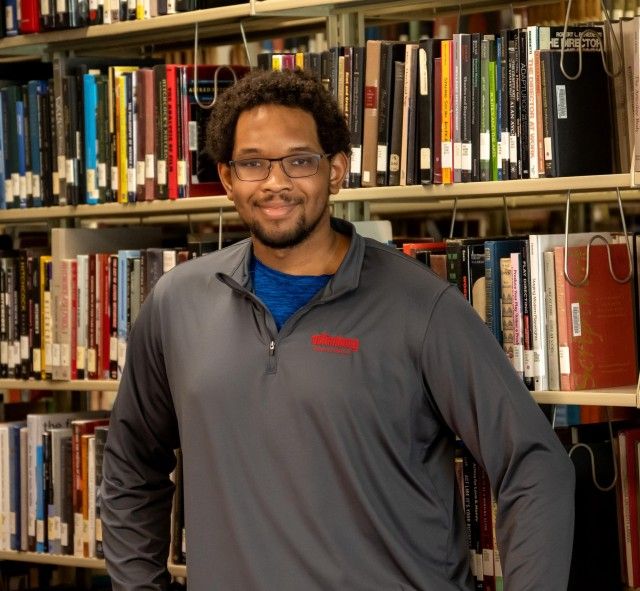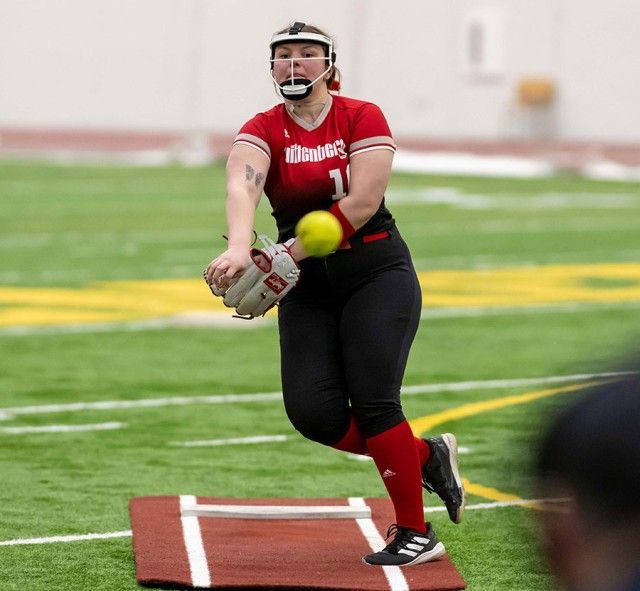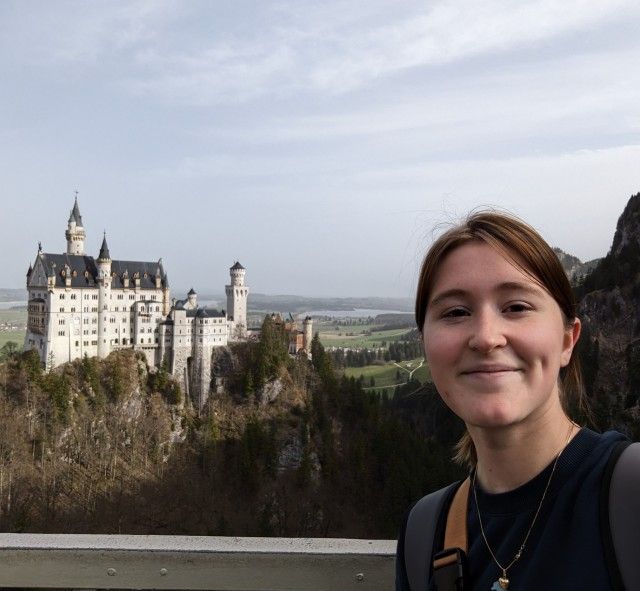From a young age, Ashley Cave ‘21 has been interested in pursuing veterinary practices. She initially expressed this interest in first grade but continued to explore other career avenues. However, after a critical internship at the Columbus Zoo two years ago, Cave knew veterinary medicine was her passion and what she will now pursue at the University of Florida (UF) College of Veterinary Medicine.
Originally from Woodstock, Ohio, Cave will earn both her B.S. in biology and a B.A. in statistics, along with completing a minor in chemistry, when she graduates from Wittenberg on May 15. During her time on campus, she has served as the president of the Astronomy Club, head math tutor at the Math Workshop, Honors Ambassador, and student representative on the institutional Animal Care and Use Committee. She also conducted research with Associate Professor of Biology Amber Burgett. Together, the two have investigated the effects of herbicides on aquatic organizations the last few years.
Cave took time out of her busy senior-year schedule to answer a few questions for Wittenberg about her next steps and the opportunities she will have at UF.
Wittenberg: Why do you believe the University of Florida College of Veterinary Medicine is the right school for you?
Cave: I am very interested in aquatic species, wildlife, and exotics. UF has an amazing program in these areas. There are even opportunities to help out on the sea turtle, manatee, whale, and dolphin stranding response team! UF also has the option to get a master’s in public health and epidemiology while completing the DVM degree. Being interested in zoonotic diseases, wildlife conservation, and statistics, I see this as the ideal route for me.
Wittenberg: What are you most excited about getting to do/learn while at UF?
Cave: I am most excited to get hands-on experience with wildlife and aquatic animals. I have been rescuing birds, snakes, turtles, and frogs my entire life. While I am able to do some things (like remove fishing line from a seagull or transport an injured hawk to a veterinary center), there are so many ways to help these animals that I can really only learn in vet school. I look forward to helping wildlife both through research and medicine.
Wittenberg: Where do you see yourself working in the future? Are you planning on staying in Florida?
Cave: I am really not sure yet. There are so many fields you can go into with veterinary medicine besides “livestock vet” or “dogs-and-cats vet.” Being interested in wildlife medicine and research, I will probably end up working for a zoo, aquarium, university, or a government agency. I definitely want to stay down south in the sunshine though!
Wittenberg: In what ways has Wittenberg led you down your career path?
Cave: My time at Wittenberg has been absolutely crucial in me choosing this career path. I fell in love with animal anatomy, physiology, and evolution through my courses. What was even more important than this are the countless conversations I’ve had with my professors trying to figure out what career field I should go into within wildlife biology. What finally set me down the road of veterinary medicine was an internship at the Columbus Zoo. I found this internship on the Texas A&M job board that Dr. [Richard] Phillips suggested to me (I’m sure any ecology and wildlife biology students reading this will know all about that job board!). I fell in love with wildlife work and research and decided then that I wanted to be a veterinarian.
Wittenberg: Anything else you would like to add would be great!
Cave: I just want to say that I am beyond grateful for my time at Wittenberg and to all of the people who supported me along the way. I am both excited to start a new chapter and sad to be leaving Witt when I graduate in a couple months. If anyone is interested in veterinary or wildlife medicine, please feel free to reach out. I would love to hear about other students' paths and offer any advice in the crazy process that is applying to veterinary school. My email is cavea@wittenberg.edu.
-By Emily Nolan ‘21







